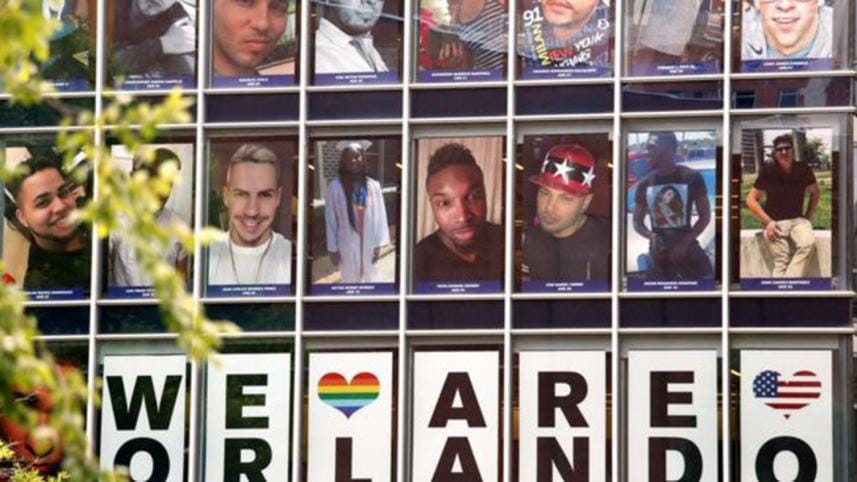Senate rejects gun-control measures after Orlando shooting

The US Senate on Monday rejected four measures restricting gun sales after last week's massacre in an Orlando nightclub, dealing a bitter setback to advocates who have failed to get even modest gun curbs through Congress despite repeated mass shootings.
A group of senators was still hoping to forge a compromise for later in the week aimed at keeping firearms away from people on terrorism watch lists, although that effort faced an uphill battle with critics in both parties skeptical about its chances.
Last week's massacre, the deadliest mass shooting in modern US history, had intensified pressure on lawmakers, who moved swiftly to take the issue to the Senate floor. But the gun-control measures lost in largely party-line votes that showed the lingering political power in Congress of gun rights defenders and the National Rifle Association.
Republicans and their allies in the NRA gun lobby said the Democratic bills were too restrictive and trampled on the constitutional right to bear arms. Democrats attacked the Republicans' two proposals as too weak and accused them of being in the thrall of the NRA.
"What am I going to tell the community of Orlando?" asked Democratic Senator Bill Nelson of Florida after the votes. "Sadly, what I’m going to tell them is the NRA won again."
Chris Cox, executive director of the National Rifle Association Institute for Legislative Action, attacked the Democrats' amendments and thanked Republicans for rejecting them. "Today, the American people witnessed an embarrassing display in the United States," he said.
Senate Majority Leader Mitch McConnell, a Kentucky Republican, said the Democratic measures were ineffective and Republican senators "are pursuing real solutions that can help keep Americans safer from the threat of terrorism."
As the parties remain largely locked in their positions, polls show Americans are increasingly in favor of more restrictions on guns in a country with more than 310 million weapons, about one for every citizen.
The issue is already a prominent one for voters in November elections. Presumptive Democratic presidential nominee Hillary Clinton supports new gun restrictions, while Republican Donald Trump expressed a willingness to talk to the NRA about the issue.
After the votes, Clinton issued a one-word statement: "Enough." It was followed by the names and ages of the dead in Orlando.
Gun control efforts failed after mass shootings at an elementary school in Newtown, Connecticut, in 2012 and a conference center in San Bernardino, California, in 2015. But some senators see resistance to gun restrictions softening as national security looms larger in the debate.
The Orlando gunman, Omar Mateen, pledged allegiance to the militant group Islamic State as he killed 49 people in a gay nightclub.
"This country is under attack ... it's not a plane or an explosive device, it's an assault weapon," said Connecticut Senator Chris Murphy, a Democrat who led a 15-hour filibuster last week to draw attention to the effort to restrict guns.
 For all latest news, follow The Daily Star's Google News channel.
For all latest news, follow The Daily Star's Google News channel.
Comments